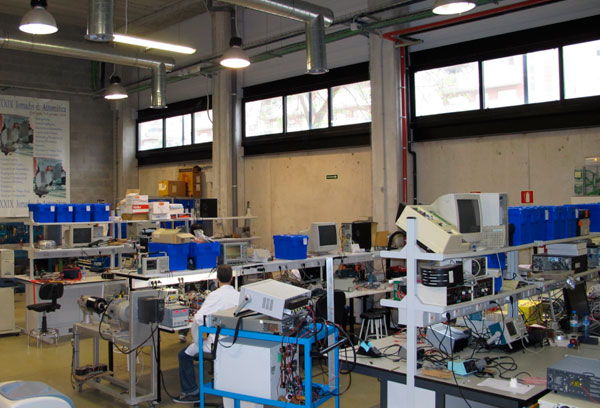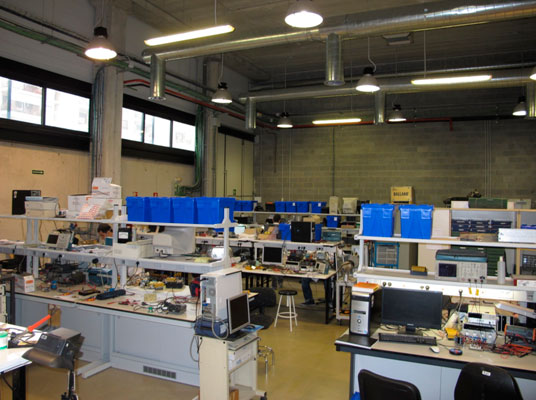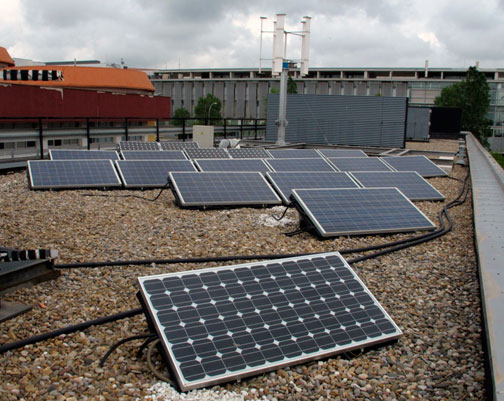GAEI

ABOUT US
The main expertise areas of the group are the intersection of the field of power converters with those of applied control, renewable energies, power conditioning, power quality and devices design.
The Group of Industrial Electronics and Automatic Control (GAEI) applies knowledge of electrical and magnetic forces to the processing, conditioning and control of electrical energy in low-power systems whose applications range form electric vehicles to renewable energy technologies.
GAEI has specialized in the design of DC-DC switching converters according to specifications for industrial applications or academic requirements. The intersection of the field of power converters with those of applied control, renewable energies, power conditioning, power quality, and devices design constitute the main expertise areas of the group.

The research activity of GAEI is currently located in four related areas:
- Renewable energies
- Electric vehicles
- Power conversion architectures
- Control and non-linear dynamics
The power electronics research at Rovira i Virgili University was initiated in 1994 under the name of Nonlinear Systems Research Group (NSRG) in the School of Electrical and Computer Engineering (ETSE). In 1999, a M.Sc. degree in Industrial Electronics and Automatic Control started in ETSE imparted by NSRG researchers, and in 2002 Power Electronics Ph. D education began. NSRG was renamed GAEI in 2000.
GAEI has been recognized as a competitive consolidated research group by the Catalan Agency for Research (AGAUR) in 2005, 2009 and 2014.
OBJECTIVES
The research undertaken by GAEI underpins a sustainable environment by developing efficient devices and control strategies for electric energy conversion.
The laboratory facilities are used to develop new actuators than can be employed in a variety of applications, these including renewable energy systems, vehicular power distribution technology, and power supplies for industrial use. The aim of the research is improving the electrical power processing involved in low -power systems in order to reduce the energy consumed by the associated electronic circuits while increasing their functional capability.
GAEI's expertise comprises DC power distribution in vehicles and microgrid systems, bidirectional conversion in electric vehicles, and power conditioning for fuel cells.
GAEI's education mission is to provide with knowledge for both Master and Ph.D. programs of the Electrical Electronic and Automatic Control Engineering Department by promoting multi-disciplinary and systems-oriented training to its students in a team cooperation environment.
FACILITIES
Facilities in the laboratory of the Group of Automatic Control and Industrial Electronics include a photovoltaic installation of 20 solar panels (4.8 kW -peak), 3 fuel cells of PEM type of 400 W each one, a PEM fuel cell of 1.2 kW, a horizontal-axis wind generator of 1 kW and a 15-battery pack of 12V/250 Ah each one.
An area of 200 m2 accommodates 15 working posts distributed in six benches. Each post is equipped with power supplies, loads, a tester, a function generator, a soldering set, and a digital oscilloscope with voltage, current and differential probes.
Specific instrumentation comprises a great variety of DC power supplies (ranging from 6kV to 10kW and to 160 A) together with loads of different type, i.e., passive, electronic (ranging from 7.2kW to 750 V DC, and to 360 A DC) , motors (DC, induction, brushless, switched reluctance), and spotlights (LEDs, HIDs and IEFLs). Other relevant instruments are a dynamic signal analyzer, an EMI measurement equipment and test chamber, a network analyzer, modelling and simulation software including real-time or hardware –in-the –loop emulation, a climatic chamber, a thermographic camera, precision power analyzers, PIC, DSP and FPGA development systems, and DC and AC motor workbenches with universal programmable loads.



